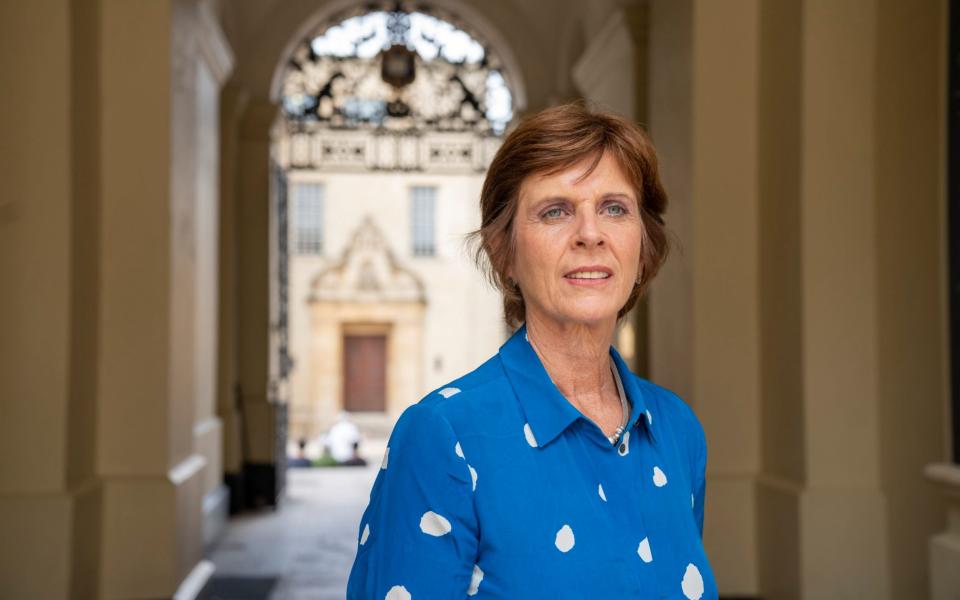Oxford's state school admission problem is because schools fail to push their brightest pupils, vice chancellor suggests

Oxford University’s low proportion of state school admissions is an indictment of the schools themselves for failing to push their brightest pupils, its vice-chancellor has suggested.
Louise Richardson said independent schools were identifying the most academically gifted from low economic backgrounds, giving them scholarships and propelling them forward but that state schools were failing to do the same.
Prof Richardson, who was appointed Oxford’s first-ever female vice-chancellor three years ago, expressed frustration over the “obsession” with Oxford and Cambridge and the relentless demands on them to correct the “huge inequities” in society.
“I really dislike this crude public-private dichotomy,” she told the Telegraph.
“One way of looking at it is that 10 per cent of the kids we currently admit are eligible for free school meals, so deprived by any standards. Almost 30 per cent of those kids went to private schools.
“The reality is that independent schools are identifying these smart, poor kids. They are bringing them in, giving them scholarships and educating them, and then they apply to us, and we take them.

“We all know that there are huge inequities in the state sector, depending on where you live. So it is fine for us to take the children of two highly educated parents out of a state school, but not some kid from a deprived background from a private school?
“We’ve got to get away from these crude, binary, good/bad notions.”
On a recent report revealing that eight top schools, mainly in the private sector, sent as many pupils to Oxbridge over three years as three quarters of all schools in the UK, she added: “But why is that an indictment of us and not an indictment of the state schools system?”
For the second year running, Oxford last year admitted the lowest proportion of state school students out of all non-specialist universities, according to official data. In 2018, 58.2 per cent of its intake were state-educated, a rise of half a percentage point. Cambridge admitted 63.4 per cent.
Students' applications to Oxford are "flagged" if they went to a school with a poor academic record, if they live in a poor household and they have been in local authority care, meaning it is strongly recommended that they are invited to interview.

Many top independent schools provide specialist support for pupils hoping to win a place at Oxbridge, support that the Sutton Trust said could not be matched in the state sector.
At Westminster school, which sends 70 to 80 students to Oxbridge each year, pupils are given personalised mentoring and university preparation classes, it said.
At Eton, which annually sends 60 to 100 students, a dedicated universities officer is “available at any time” while St Paul’s boys’ school employs 11 specialist UK university advisers.
Earlier this year, Dr Anthony Wallersteiner, the headmaster of the £36,000-a-year Stowe School, Bucks, warned that the number of privately educated children getting places at Oxbridge had been "driven down" as part of efforts to boost diversity.
He claimed there was now a “micro-industry in bashing private schools”.
But in response, Damian Hinds, the Education Secretary, said Britain should celebrate more state schoolchildren winning places at top universities, insisting they should have a "fair crack at the whip".

 Yahoo News
Yahoo News 